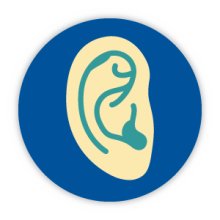
Research
Message from Vice Chair of Research

Vice Chair for Research
Research is a core component of the mission of the Department of Head and Neck Surgery & Communication Sciences (HNS&CS). The basic and translational research enterprise at the University and School of Medicine level provides a rich environment for students, residents, fellows, and faculty. An ongoing strategic priority for the Department has been to greatly expand HNS&CS research efforts, in parallel with clinical growth. Our commitment to research training and surgeon-scientist career development is strengthened by an NIH R25 grant supporting otolaryngology resident, NIH R25 BAA-POCS program and medical student mentored research opportunities.
Currently, the Department has several faculty members supported by National Institutes of Health (NIH) funding, with additional programs supported by other extramural sources. Our research programs address problems across the breadth of otolaryngology, including head and neck cancer, hearing and balance disorders, global health issues, airway and inflammatory diseases, olfaction, speech and swallowing dysfunction, and clinical outcomes.
In addition, collaborations with scientists outside of the department provide opportunities to address unmet needs leveraging Duke’s world-class academic programs. With resources, including superb core facilities and institutes (Cores), unparalleled infrastructure supporting clinician-scientists (Office of Physician-Scientist Development), and other institutional initiatives, Duke HNS&CS will be a local, national and global leader in the advancement of otolaryngology innovations.
Current NIH Funding
Frank-Ito, Dennis Onyeka
Goldstein, Bradley
- Otolaryngology Surgeon- Scientist career Path (OSSP) program
- Therapeutic potential for modulation of olfactory basal stem cells
- Pathobiological mechanisms of persistent post-COVID19 olfactory dysfunction
- Single cell analysis of human olfactory mucosa
Lee, Walter
- Partnership to establish a practice-based network to assess for head and neck cancers using a low-cost portable flexible nasopharyngoscope
- RAPID System for Early Detection of Head and Neck Cancer in Low-Resource Settings
- Adapting a machine learning algorithm to predict thyroid cytopathologyin LMIC
Minga, Jamila
- Neuroanatomic Correlates of Language Production Characteristics After Right Hemisphere Stroke
Osazuwa-Peters, Nosayaba
- HPV, HIV and Oral Microbiota Interplay in Nigerian Youth (HOMINI)
- Suicide risk detection and mitigation in patients with head and neck cancer
- Long-term Opioid Therapy, Depression and Suicide Mortality Risk in Patients with Head and Neck Cancer
Riska, Kristal M.







